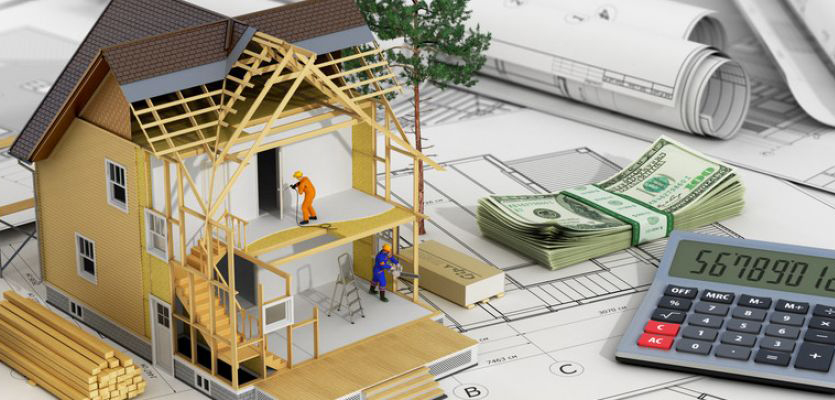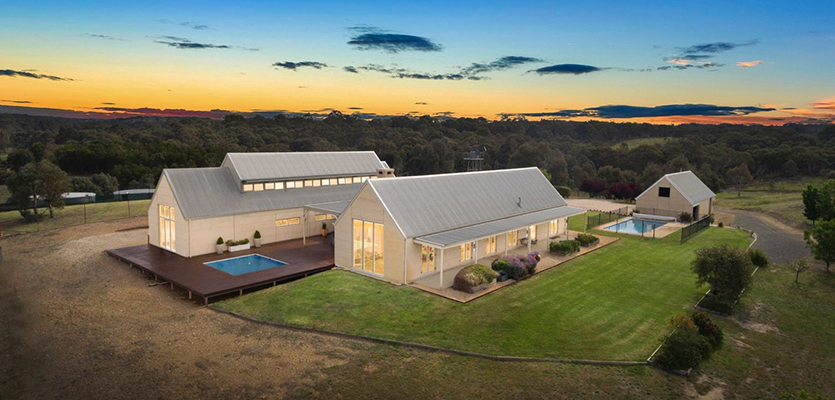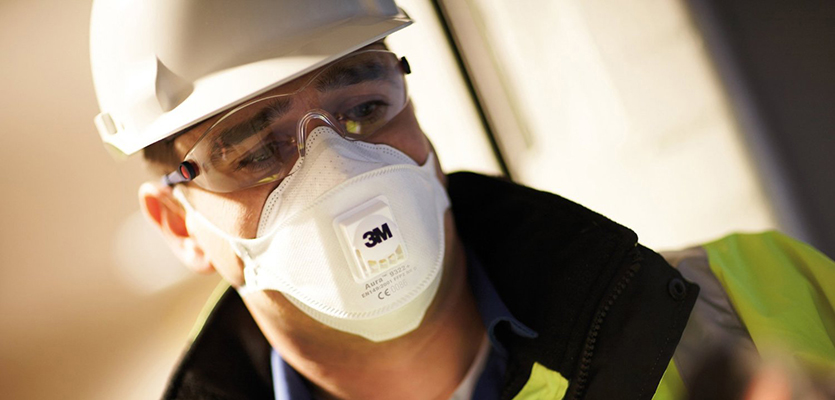SITE INSURANCE
Without Site Insurance you could lose your home and still have to pay the mortgage.
Owner building can be a rewarding experience but one part that can be an issue is insurance. In this report Australian Owner Builders will explain each of the types of insurance that an owner builder can protect himself or herself with.
The amount of capital invested in your project is significant. Not protecting your interests for the sake of a few dollars does not make sense. While the aim of all good project managers is to keep costs under control, trying to save money and expose the project to risk would be to put you and your family at severe financial risk.
The advice in this document covers the main insurance products you need to know about being:
- Site Insurance
- Warranty Insurance
- Voluntary Workers Insurance
- Personal Accident Insurance
- FAQ’s
1. Site Insurance
When embarking on a major project like a new home or a major renovation, getting your planning and preparation right will lead to a much smoother project. However, no matter how well you plan, things can and do go wrong and it is essential that you have the appropriate insurance in place for your project. Insurance is a necessity, not a luxury.
Site insurance is essential for anyone who’s owner building or undertaking a renovation project. You’re personally liable for any injuries, damage or financial implications that could occur. If you don’t want to have to pay for these things out of you own pocket it’s essential that appropriate insurance is put in place, as you don’t want to see all that hard work going down the drain.
A major building project can be stressful; unexpected events such as a flood, fire or theft of materials could seriously impact on both the timescale for the build and costs and could have a disastrous effect on your ability to finish your new home. With a major project, it is essential that your investment in both time and money is protected against any major problems. It is therefore essential that you have adequate site insurance cover in place and indeed, if you are borrowing to finance your project, you will be required as a condition of your mortgage to have the cover in place.
The policy is in two parts – the insurance is site specific – only for that site!
Contract works- covers you for storm, water, flood damage, theft, vandalism, fire, and malicious damage
Public liability – covers you for third party injury and property damage
For eg: If a tree falls through the fence onto the neighbours car due to the roots being exposed because of your construction project Or the bobcat destroys the fence because you have insurance which includes coverage for sub-contractors – the two insurers will ‘battle’ it out!
Most policies now are a minimum of $5 million but $10 million is becoming more common.
Site insurance can provide you with cover for storm, wind and water damage and theft and burglary. These are the most common claim events which can go wrong during your build. Site insurance also covers materials and equipment on site. Remember, building sites and dangerous places, accidents happen and because the site is often deserted at night, damage can occur and materials and tools can be stolen.
Questions you want to ask
Is this policy extendable?
A lot of policies are only for 12 months and are not extendable. If you think you may take longer, ask.
Adjoining property protection:
If you are building on or near the boundary of another property the building surveyor may require that you take our insurance that will cover the adjoining property and for a period of 12 months after completion of the work. Check that your policy has this cover.
Are you renovating/extending?
Home and contents insurance is designed to cover an existing home against damage, loss or burglary. It is not designed as construction insurance. Home and contents insurance policies will, usually, cover the homeowner for a limited amount of renovation work. But there are clear limits to what a policy will let you do. The one simple rule, always and in all circumstances, is check with your home and contents insurance provider BEFORE you start any works!
If the value of the work is over $50,000 (what a builder would estimate the job value) then you won’t have full cover. Just because you and your friends can build it for $20,000 it would not matter in the event of a claim, the insurer will work on builder’s rates. Also you need to read very carefully your Home and Contents Policy wordings because the insurer will exclude damage caused by a tarpaulin blowing off roof leaking. Eg: Damage caused by storm, flood or water entering the building.
The common “policy busters”, or the situations that put your project outside the terms and conditions of your home and contents policy include:
Vacating the building – some extensions or renovations can be dusty, dirty, noisy or just too dangerous to have the kids around. The alternative may be to stay with family or friends, but check your policy. If the property is vacant for a set period of time the home and contents policy may be void. 60 days seems to come up in most policies available.
Removing external walls or roofing – the removal of external linings will usually trigger home and contents exclusion. The extra risks from the unprotected home include exposure to the elements as well as easier access for thieves and vandals thereby suspending the policy.
It is highly advisable to cover your existing property when insuring your renovation or extension for a few extra dollars, in the event of a claim – let the insurers have the hassle.
Are my contents insured when I am renovating?
No. If the value of the work is over a certain minimum amount.
Please call our insurance helpline to get cover.
I am using a builder to lockup stage –
Do I need Insurance?
Yes, while the builder should have Construction and public liability insurance in place, there will be no insurance once the project is at lock up.
Note well: it is very difficult for you as an Owner builder to find an insurer to supply you insurance at lock up the smartest thing to do is take out the insurance at commencement, even though you are doubling up, it will be a lot, cheaper to do it this way than try to obtain the insurance at lock up.
I am halfway through my home –
Do I need Insurance?
Yes, it is available, generally but it will cost more! DO NOT start your project before you have the insurance in place, if you want to save money.
I am building a Kit Home –
can I get Insurance?
Yes, some insurers require that there are at least 3 drops (of building materials). There is a history of the truck dropping off the house at the site and next day the whole house is gone!
Under Insurance – what do you mean?
A common trap for owner builders is to under insure the project. A misconception is that by quoting a lower cost for the project than is actually the case, the premium will be lower. The belief is that the cost of a claim, in most cases, will not be as big as the amount insured. This is a dangerous misconception. A cheap premium, based on your underestimation, could leave you well short of the money needed to rebuild the project if something serious does go wrong.
Bear in mind the insurer will cost out the claim as if a registered builder was repairing the damage. E.g. In a very simplified example the owner builder takes out a policy for $100,000 on an extension. It burns down, the insurer access the claim and estimate the cost of construction at $200,000 the owner builder is $100,000 under insured, because he is half insured he will only receive $50,000 not the $100,000 he thought he was insured for you ,cannot part insure! It is better to be a little bit over than under when it come to insurance policies.
What else to watch for?
Most policies on the market are builder policies, and the insurer does not want to make the owner builder specific because of the cost. Therefore they include such things as blasting or explosives, maintenance, underground works etc… which you are being charged for.
Will you be storing appliances, tiles etc off site, make sure the policy covers – principal (you) supplied materials
Are subbies covered?
Most policies do NOT cover subcontractors that you employ on site, that is it VITAL that you check their Public Liability insurance policy to make sure it is current, preferably keep a copy, to help you, we have supplied a trades insurance register appendix to this report for you to use to ensure all trades on your site are insured. Also we are developing a trades directory of those trades who have public liability insurance in place.
Usually it is a condition of the insurance that all sub-contractors must:
Have a minimum of $5,000,000 public and products liability insurance and relevant employers liability insurance;
Conduct a thorough safety inspection of the Construction Site prior to beginning any work or delegating any work;
Be required to comply with all relevant safety requirements applicable to the work they will be conducting on the Construction Site; and
Be accredited or licensed where applicable for the work they or persons under their instruction and/or employment are performing
Are my tools covered?
Generally, no but you need to check – if you hire a tool is it covered? Is there a limit up to $1000 that my tools are covered or do I have to pay extra for cover?
What can I do to limit the risk?
Short of living on site there is not a lot the owner builder can do to protect the site. Employing a security service is both expensive and ineffective as the security firm cannot be there all night. A study commissioned by the State government in Victoria and conducted by the city of Casey officers and Victoria Police found that, while most theft as perpetrated by industry participants, some simple strategies could be implemented to reduce the risk of theft. The study recommended,
A simple lockable fence around the site to increase the difficulty in removing large amounts of material.
Marking all materials in a vivid colour to make it easier for police to identify your material.
Develop a relationship with neighbours and explain that no one has permission to remove anything from the site. Ask them to call you if something does not look right.
Do not fit expensive items, such as white goods until the project is complete and you are moving in.
Definitions:
What do these insurance terms mean?
Excess – The sum or sums of money you are required to first pay towards all claims as indicated on the Schedule.
Schedule – The certificate issued by the insurer which forms part of your Policy and shows your Policy number, the Premium, the cover selected by you, and any special provisions, limits or endorsements.
Endorsement – A certificate or replacement Schedule issued by the insurer, noting alterations or changes to the Policy.
Subcontractor – Any person conducting work at the Construction Site where payment in any form was agreed to, arranged or discussed prior to the work being conducted.
Voluntary worker – Any person who undertakes any activity in any way connected to the Construction Works:
On a voluntary basis; or
For which any form of reward will not be a component of their taxable income; or
Where there is no quote and/or written agreement on costs of work prior to any work being conducted.
Cross liability – where you comprise more than one party, each of you is considered as a separate legal entity and the expressions ‘you’ and ‘your’ apply to each party as if a separate Policy had been issued to each of the parties but the aggregate liability is limited to the Limit of Liability.
Please call our insurance help line to organise cover before you start 03 8789 5810.
2. Owner Builder Warranty
This insurance is only required if you, the owner builder sell within 6 years of the final, either the Certificate of Occupancy or Certificate of Final Inspection in Victoria.
Repeat! This insurance is only required if you,the owner build sell within 6 years of the FINAL!!!
What is Warranty Insurance?
The vendor warrants that all domestic building work carried out in relation to the construction by, or on behalf of, the vendor was carried out in a proper and workmanlike manner; and;
The vendor warrants that all materials used in that domestic building work were good and suitable for the purpose for which they were used and that, unless otherwise stated in the contract, those materials were new; and
The vendor warrants that the domestic building work was carried out in accordance with all laws and legal requirements, including, without limiting the generality of this warranty, the Building Act 1993 and the regulations made under the Act.
What does Owner Builder Warranty Insurance cover?
Owner builder warranty covers the purchaser, or any subsequent purchaser, of the property for the balance of the 6 year period after the final or occupancy certificate was issued if the owner builder dies, disappears or becomes insolvent, however defects, incomplete works or second hand materials noted in the Defects Report are exempt.
Why do I need it?
To protect purchasers from any work done by the owner builder that is defective.
If you neglect to take out this warranty insurance you could be fined up to $10,000 and the new purchaser could pull out of the contract of sale at any time prior to settlement.
Before taking any deposit from the purchaser, and before he/she signs the contract to buy your home, the contract must have the insurance policy attached.
Steps required to plan for it, if I was to sell
As the warranty period commences from the date of the final. It is imperative that you have your building surveyor inspect the work and supply you the final certificate ASAP The less number of years you have of the 6 year period the cheaper the insurance will be!
Keep in a safe place (that you will find) the following documents.
Copy of the Building Permit
Copy of the Certificate of Occupancy or Certificate of Final Inspection
Any electrical, plumbing warranty certificates
Termite treatment certificate
3. Voluntary Workers Insurance
The question is, “are Voluntary Workers covered by Workcover?” The short answer is NO. A construction and public liability policy only cover third parties affected by the worksite, either innocent parties with no involvement with the project or contractors engaged to work on site for remuneration. Occupational health and safety legislation only covers Workers remunerated for this labour. Volunteers are not eligible for Workers Compensation. This policy ensures their protection against financial loss if an injury occurs whilst performing voluntary work.
In general an owner builder who is building or renovating their own private dwelling or through the use of various building contractors will have limited involvement with workplace safety laws. This is because, in most instances, owner builders do not directly employ anyone and are not deemed to be an employer as defined by the Occupational Health and Safety Act. This means friends or relatives helping out with your project, without payment (e.g. volunteers) are not protected under the Occupational Health and Safety Act. This is because essentially you are inviting someone – or they are offering – to help (without payment) at a private dwelling, not a workplace. There is no employer/employee relationship.
Bearing this in mind, owner builders should be cautious when using friends and relatives as volunteer labour to help in their building project – and those volunteering should also weigh up the risks of doing so.
Features your policy should have
Personal Accident, Lump sum payment for accidental death or permanent disabilities
Broken Bones payment for accidental injury
Weekly Benefits payment for accidental temporary total disablement
Medical Expenses (non Medicare related)
Non income earner payments include Domestic Home Help or Student Tutorial Benefits for full time students due to accidental temporary total disablement
Cover for between 16 and 80 years of age
Please call our insurance help line to organise cover before you start 03 8789 5810.
4. Personal Accident Insurance
As an owner builder, you take on the wellbeing and responsibility of those working on site. So who is going to look after YOU?
So you and your partner have made the big decision to become owner builders and construct your dream home. You have chosen where you’re going to build, drawn up plans with an architect and have the mortgage in place. You have approval from the local council; tradesman lined up and arranged construction and public liability insurance policies; so you’re all set to go.
However, you need to remember that building and construction sites are listed as one of the more dangerous places to work and, regardless of all the planning and precautions taken, accidents can and do still occur.
Owner builders who injure themselves can be laid up for months. As an owner builder you need to protect your income in relation to your usual job, while at the same time keeping the project moving – after all, it’s your home and your money.
The policy should specifically provide lump sum benefits due to death or permanent disability from accidental injury and weekly benefits for temporary disablement due to accident, injury or sickness. This assists in reducing financial hardship as a result of injury and sickness and the insured person’s inability to attend their usual occupation
Features your policy should have
Accidental death
Permanent disability due to accident
Broken bones due to accident
Weekly Benefits payment for temporary total disablement
Weekly Benefits payment for temporary partial disablement
Employee or self employed
Owner builder Personal Accident Insurance is low cost but provides specific owner builder protection during the critical phases of the building process.
Please call our insurance help line to organise cover before you start 03 8789 5810.
5. FAQ’s
Site Insurance
Why do I need Construction and public Liability Insurance?
Owner builder, by taking out the control permit, can be deemed to be in control of site safety and coordinating of workers. Uninvited guests or neighbours could sue you for hundreds of thousands of dollars if an injury or damage can be traced due to your negligence. It is vital that you take out Public Liability Insurance to protect yourself and your assets against potentially huge claims.
Public liability covers third party personal injury and property damage that occurs during the period of the policy for which the insured shall become legally liable.
Where workers are employed rather than subcontracted the owner builder should seek workers compensation cover. Public Liability does not satisfy workers compensation requirements.
Note: you are required to ensure that all sub-contractors and specialist suppliers provide you with their own public liability insurance for damages or personal injuries they cause due to their negligence.
What does Construction Insurance protect me for?
Construction insurance (also know as Contract Works, Material Damage or Construction Risk Insurance) covers the main risks encountered during the building process. These include malicious damage or vandalism, theft, fire damage, storm, wind and water damage.
What about extensions and renovations on my home, which is already covered by Home and Contents Insurance?
It is vital that you check the specific policy wording of your Home and Contents Policy, as most insurers suspend the home insurance and public liability cover for renovation and extension work over a certain value or complexity. This could affect the cover to the existing house for loss or damage as direct result of the renovations or extensions. Public liability cover could also be affected. If you are renovating or extending you should check your current policy wording carefully.
When renovating your home the greatest risk is from storm, wind and water damage. These are the most common insurance claims.
How do I know I have enough insurance?
This is known as the under-insuring trap. Do not try to save money by insuring your works for less than the actual replacement cost of a licensed builder carrying out the work. In the event of an indemnifiable event under the policy, (an event that is insured), and it is found that the sums insured are less than 90 percent of the amount required to be insured, the amount recoverable by you under this policy will be reduced by such proportions as the sums insured bear to 90 percent of the amount required to be insured.
Is my nature strip covered?
Check that your policy does cover public liability for your nature strip.
Warranty Insurance
What is a defects report?
It is an inspection report by a prescribed inspector who will list any defects, incomplete work and second hand building materials. These are not claimable by the purchaser the report forms part of the documents required before the insurance can be issued.
Why is warranty important to me?
You can be fined if you sell without it
The purchaser can walk away with no consequences if the warranty is not in place when the contract of sale is signed. You lose the sale!
Which building works need the insurance?
Virtually any work that required a building permit and some that did not.
This includes any new home, renovation/ alteration/ extension, improvements and repairs to the home, garages, carports, sheds, pools.
Owner-renovator work.
We know that owner builders owner build to save money and have control of the building process. However, you have to invest in order to save and taking shortcuts by under insuring or not obtaining the final inspection is just plain stupid.
For most people this will be the biggest investment decision of their life and to not fully cover their home when it is being built or waiting till the home is sold to obtain warranty (and miss out on the sale) is just plain madness.
You need to read your policy wordings carefully, what does it cover and not cover and don’t go outside those boundaries.
Australian Owner Builders has just upgraded its website – ownerbuild.com.au which is full of information on government regulations, interesting articles, services, kits, books etc which we offer for you the owner builder.
I wish you all the best and thank you for reading this advice and hopefully we, your building surveyor and Australian Owner Builders have helped give you piece of mind.
Happy Building!
Philip Graf – Manager
PS. A special note of thanks to the many building surveyors who have suggested and supported this concept.
Please call our insurance help line to organise cover before you start 03 8789 5810.
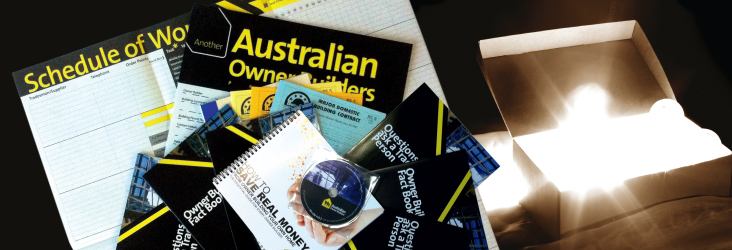
Planning Kits
Maximizing the savings on your owner builder project comes down to efficiencies and organisation. Save your time and money with our Planning Kits.
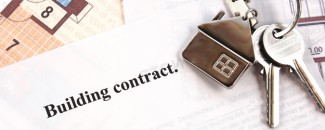
Insurance
Owner building can be a rewarding experience but one part that can be an issue is insurance. Without Insurance you might lose your home & still have a mortgage.
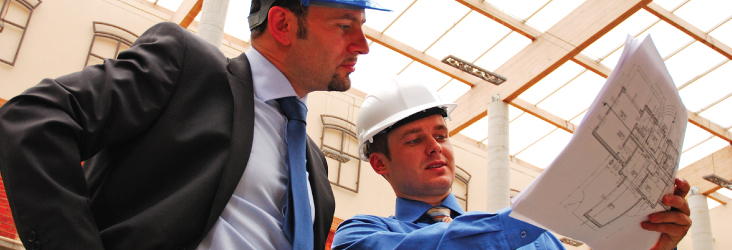
Education
Develop your knowledge and skills by accessing our range of presentations and courses designed for you, to help you save time and money.

Save Real Money
Is a handy size, easy-to-understand 170 page booklet specifically for the Owner Builder written by expert trades-people and educators. A must for any Owner Builder.
Latest News
Keep up to date
Keep yourself updated with the latest news and current news on all things Owner Building.



